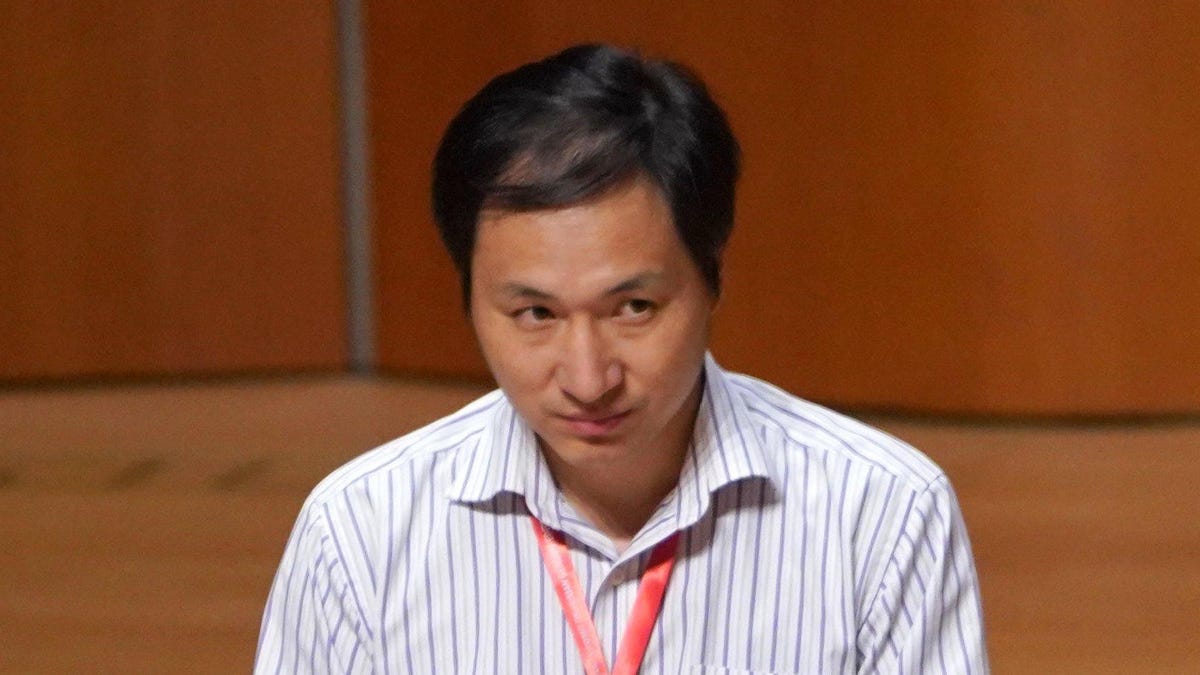Gene-editing experts say 'no sound scientific reason' to make CRISPR babies
Experts call the quality of the science to create gene-edited babies "poor and superficial".

He Jiankui was widely condemned for using CRISPR to edit the DNA of human embryos.
When He Jiankui strolled onto stage at the second World Summit of Human Gene Editing and presented data on the world's first gene-edited human babies, there was only silence and a quick-fire shuttering of camera lenses.
In the aftermath of his presentation, there has been a cacophony of noise. He Jiankui was widely condemned by the scientific community for using the revolutionary gene-editing technology CRISPR to cut out DNA in human embryos. Now, two Chinese experts have examined the data He presented at the conference, finding the methods not only unethical, but scientifically flawed.
The paper, published in PLOS biology on April 30, and authored by Haoyi Wang and Hui Yang of the Chinese Academy of Sciences, breaks down He Jiankui's work. Their critiques extend to He's targeting of the CCR5 gene, his methodology for validating results and the reasoning behind undertaking the gene-editing experiments in the first place.
In a comprehensive breakdown, the authors note a number of experimental shortcomings:
- Gene editing embryos is not necessary to prevent HIV transmission to the fetus and does not provide any benefits for the babies.
- There are currently no details regarding long-term follow-up of the twins.
- They call He's data "absurd" and suggest the quality of the science is "very poor and superficial."
- We have an incomplete understanding of the DNA-repair mechanisms and outcomes, which introduces more risk.
Wang and Yang note that the data presented by He remains unpublished and they cannot sufficiently vet the data presented on the PowerPoint slides that were shown at the summit last November. They call for "the authorities conduct a thorough examination of all the original data and disclose the facts to the scientific community and general public."
The authors conclude "after reaching a clear consensus, clear and strict laws need to be passed, implemented, and enforced at an international level" but suggest that the technologies to edit human embryos continue to be developed as they may provide important solutions to genetic diseases.
He's work was immediately suspended following his presentation at the summit in November. Preliminary investigations by Chinese authorities in January called the experiments "unethical" and "unlawful". Those involved in the investigation said He Jiankui and "other relevant personnel and organizations" would receive punishment according to laws and regulations.

